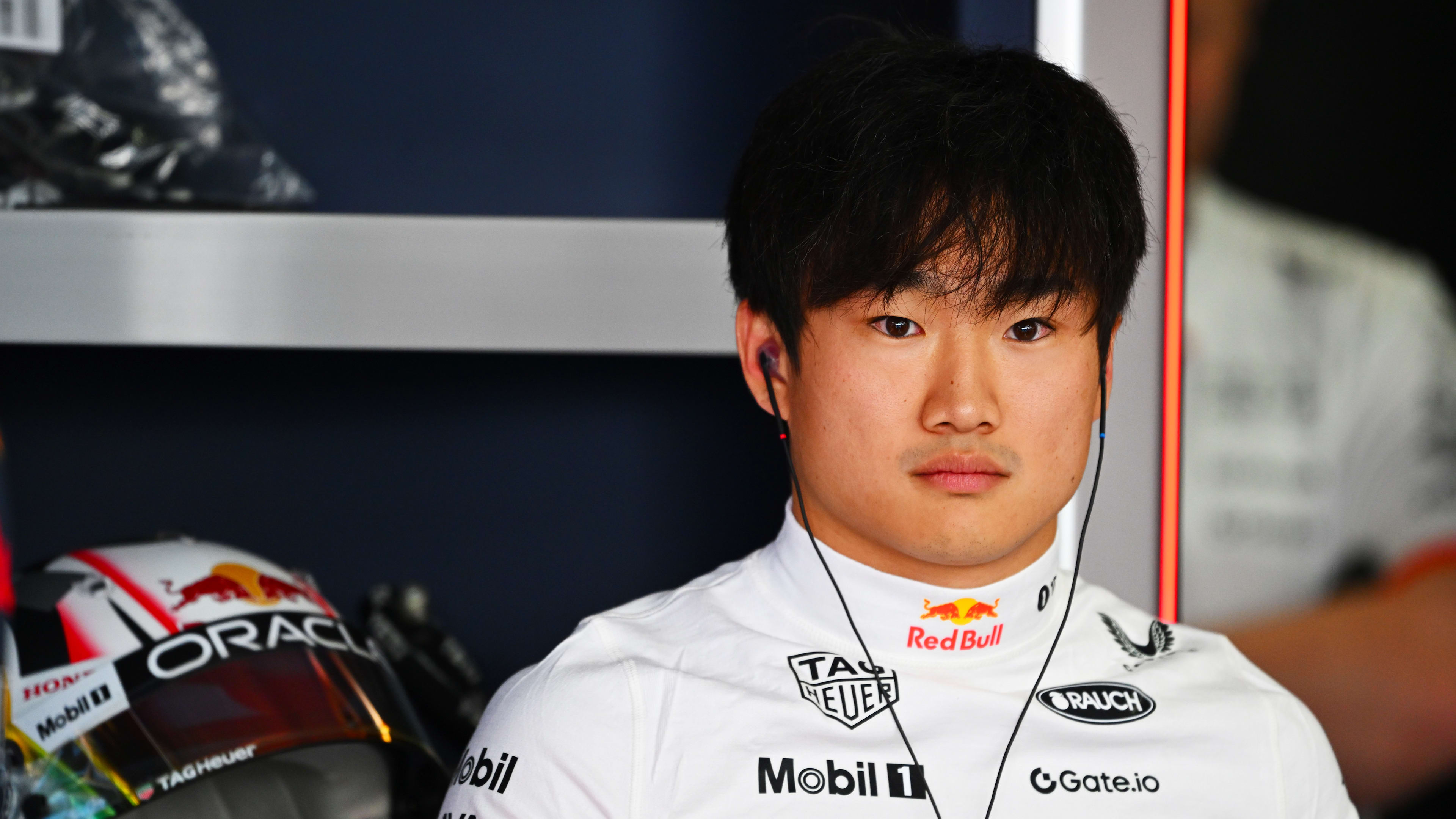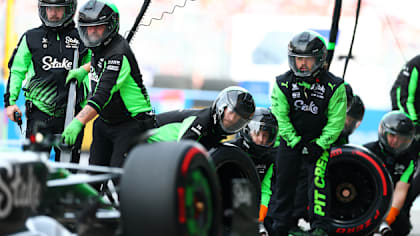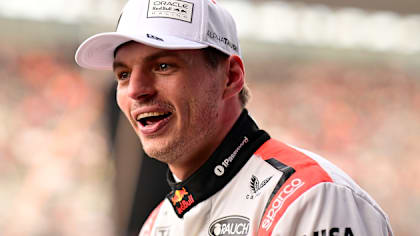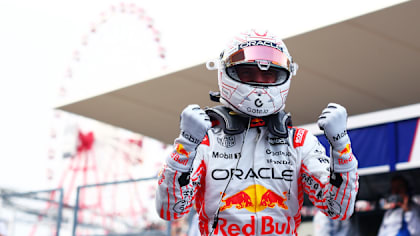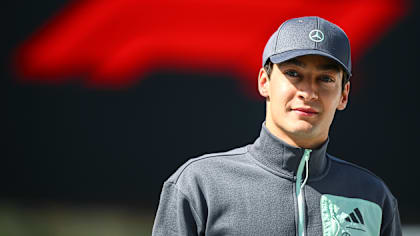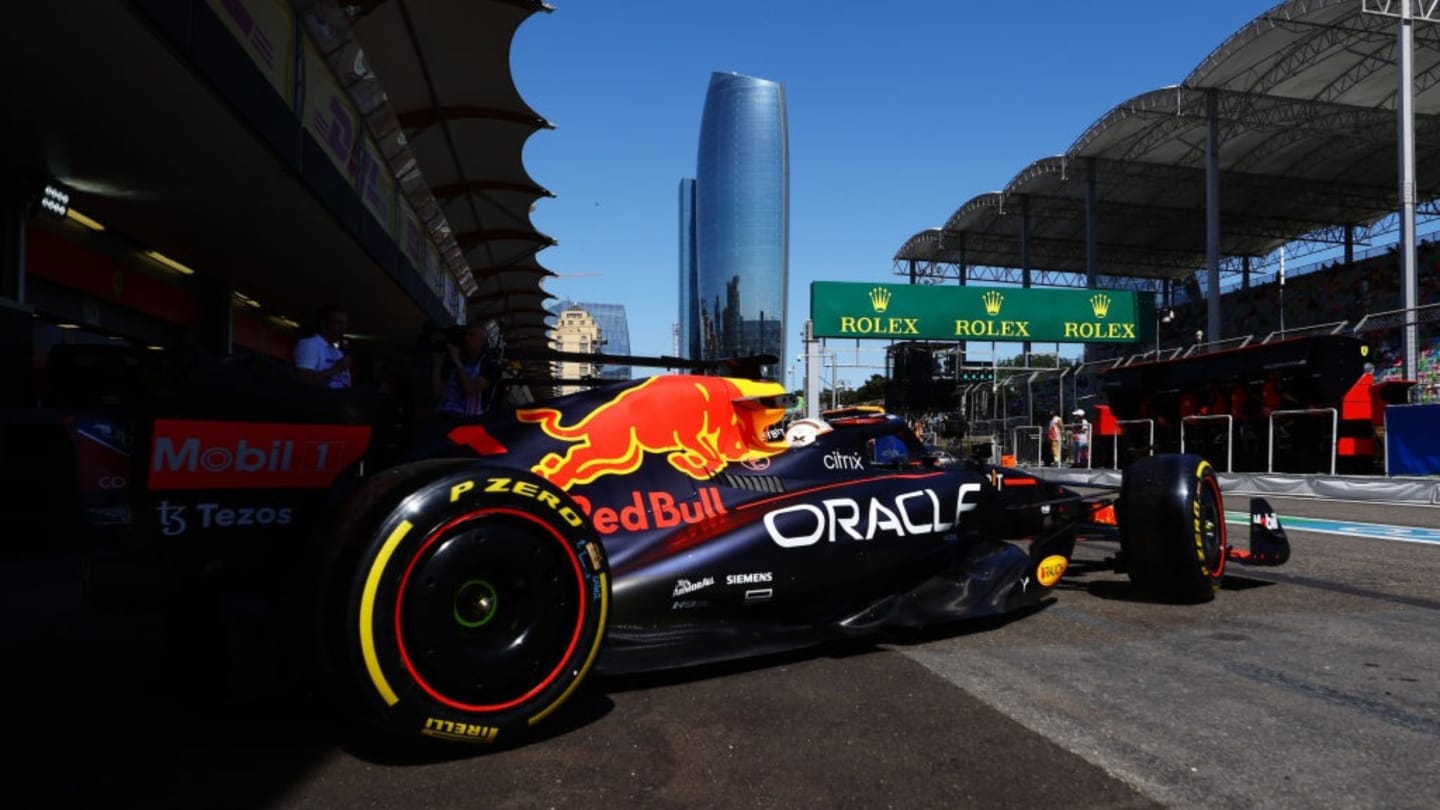
Feature
STRATEGY GUIDE: What are the possible race strategies for the 2022 Azerbaijan Grand Prix?

Share

This weekend, Formula 1 is racing on a street circuit for the second race in a row – but one that offers plenty of opportunities for overtaking as well as having the jeopardy provided by close walls. So, let’s take a look at the different options available to the teams in Baku…
What’s the quickest strategy?
On a smooth surface, a one-stop strategy looks to be the fastest route to the finish, but there is a bit of variety available in terms of how teams will go about it. The likely starting tyre is the medium, as it provides a good level of grip and gives teams flexibility when it comes to their first stop, opening up an ideal pit window of between Laps 18 and 23.
The second stint would then be done on the hard tyre, as the C3 compound is a consistent one that the teams know well, and it doesn’t appear like it will degrade too much over the final 30 laps of the race.
There’s no certainty over that final point, however, because nobody carried out their long runs during the same time of day as the race will be. First practice and FP3 both took place at 1500 local time – when the race starts – and track temperature was up near 50C, but by the time of FP2 at 1800 (when the long runs and qualifying were carried out) the track temperature had dropped by some 15 degrees to 20 Celsius.
That means the tyres could react differently on high fuel in the heat that is expected on Sunday, and the drivers will be trying to protect the rears a bit more as traction is crucial in Baku.
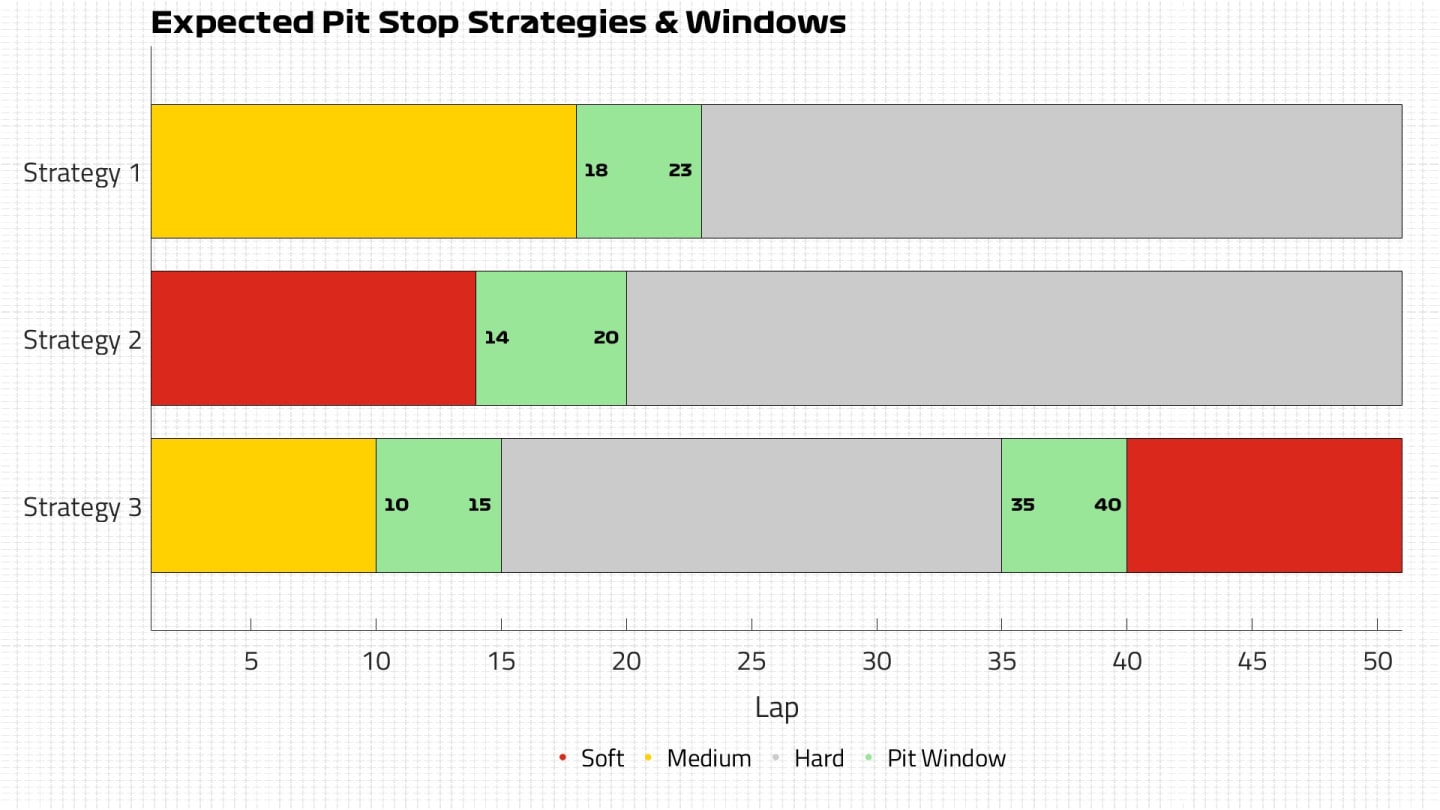
How about a different option for the top 10?
To try and make more ground at the start, drivers could look at using the soft tyre for the first stint of the race, but there’s a trade-off to be factored in.
The soft compound would provide an advantage on the opening lap, especially through the heavy traction zones off the line and out of Turn 2. But with a full tank of fuel and much higher track temperatures than seen during FP2’s long runs, there would need to be a significant degree of pace management to try and make the first stint last long enough to then carry out a one-stop race.
Ideally, drivers would want to get as close to Lap 15 or 20 as possible, but could be needing to pit as early as Lap 10 as their pace drops off, because it’s no good having the advantage of the extra grip off the line if you then give up more race time later in the stint.
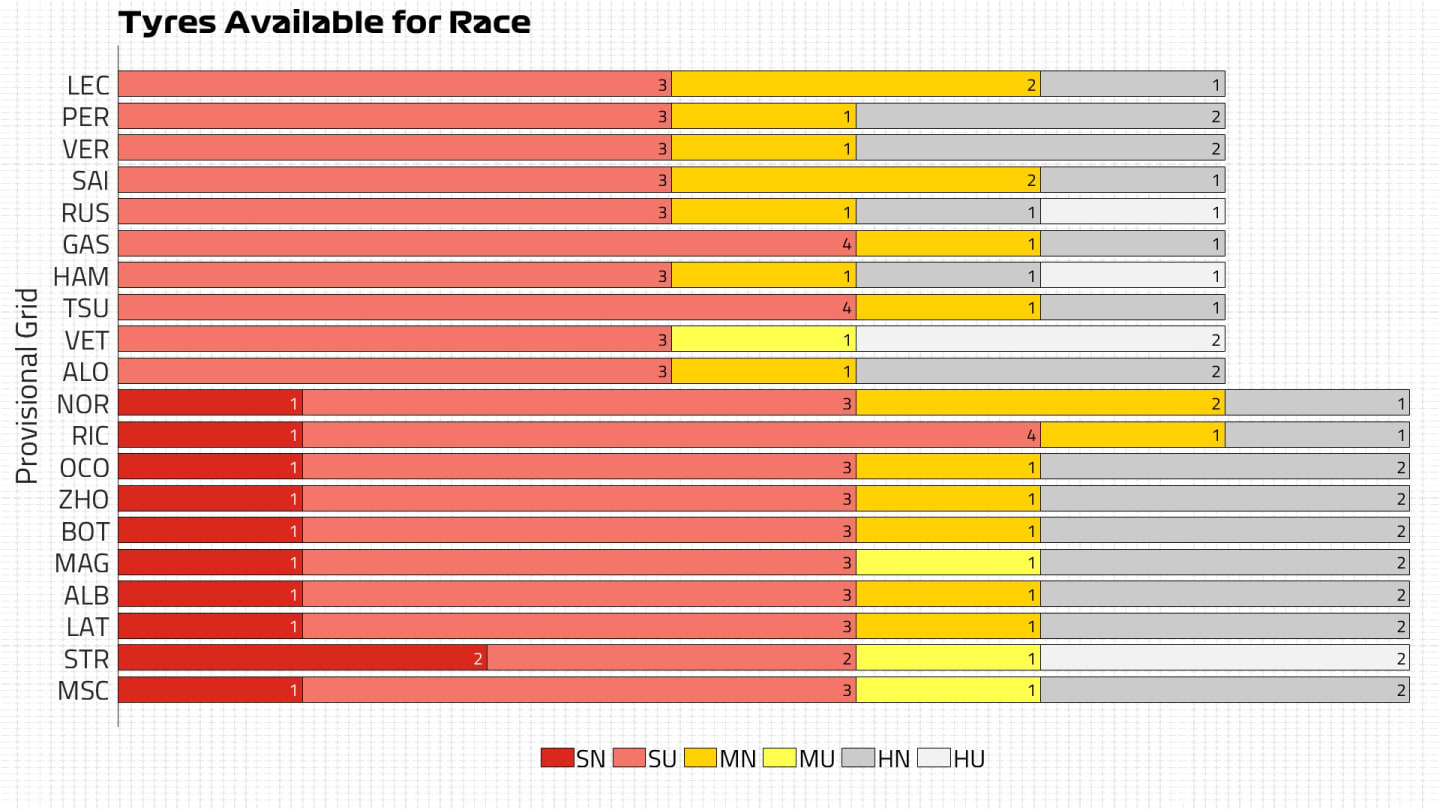
A two-stop race could also be considered for anyone looking to start on the soft tyre, allowing a more aggressive first stint. This is a possibility because all the teams other than Ferrari, AlphaTauri and McLaren have retained two sets of the hard compound for the race, and running up to 10 laps on softs before fitting hards would allow two attacking stints of around 20 laps on the hard, or a longer middle stint and the ability to react if there is a Safety Car interruption at some stage.
Alternatively, a two-stopper starting on the medium is possible, before a switch to the hards after Lap 10, and a final stint on the softs anywhere between Lap 35 and 40.
What are the options for the bottom half of the field?
The two-stop strategies suggested above are predicted to be a few seconds slower in overall race time, but can be factored in as an option based on overtaking being much easier in Baku than on many street circuits.
The two DRS zones will allow drivers to try and make moves, with the second coming at the end of a 2.1km full throttle section that has also seen cars able to pick up a slipstream, so if there is also a tyre advantage then they should get through the field relatively quickly.
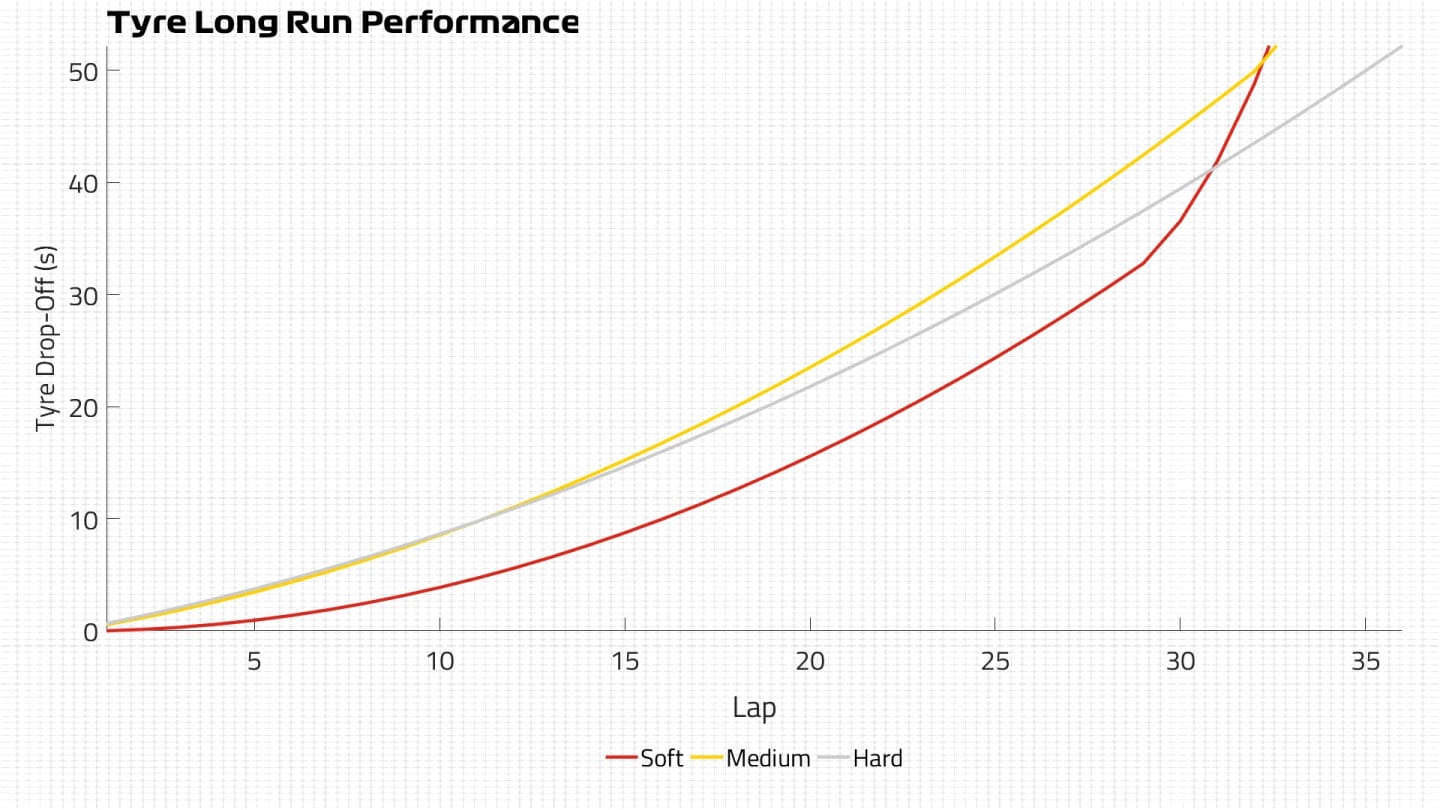
But teams always tend to err on the side of caution and go for a one-stop wherever possible as fewer pit stops also means fewer opportunities for an issue in the pits that costs them time, so a one-stopper starting on the hards could well be looked at by the likes of Esteban Ocon and Valtteri Bottas in 13th and 15th respectively.
That would mean a long first stint of around 30 laps before switching to the medium compound tyre, but as the track would be improving with more rubber being laid down – and track evolution has been particularly high in Baku this weekend – then it might be possible to run even longer and fit softs for a quick final run to the flag.
Wait, but what’s the weather doing?
Unlike the drama we had in Monaco – where teams were constantly keeping an eye on the weather radar to see if rain was going to hit prior to the race, which eventually fell with just 15 minutes to go – Baku is looking much more settled.
High winds on Friday made conditions a little tricky but those have died down, and it’s track temperature that the teams will be most focused on.
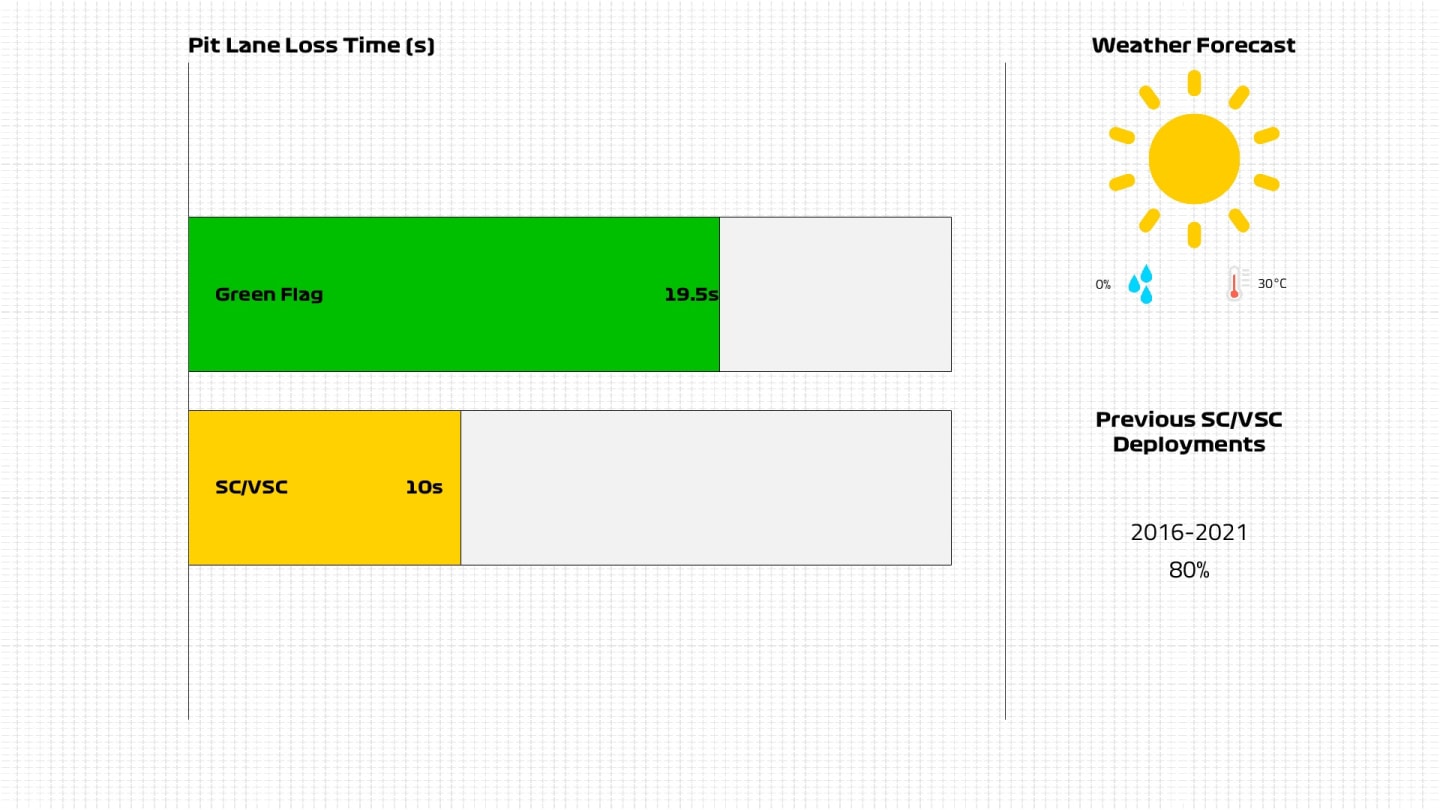
With air temperatures forecast to be up at at least 28C, the track temperature is likely to get close to 50C and as pointed out earlier, those are conditions that the teams did not complete their long runs in, with FP2 taking place on a much cooler track as the sun started to set and most of the circuit was covered in shadows.
Higher temperatures will mean more tyre management is required to prevent overheating in the major traction zones out of slow corners, but should reduce some of the graining that was seen on the rear tyres when teams ran the softs on Friday evening.
HIGHLIGHTS: Watch the action from qualifying in Baku as dominant Leclerc takes pole
Share
YOU MIGHT ALSO LIKE
FeatureF1 Unlocked STRATEGY GUIDE: What are the tactical options for the Japanese Grand Prix?
Feature FACTS AND STATS: Verstappen becomes the season’s fourth different polesitter as he sets new Suzuka lap record
Report Verstappen clinches stunning pole position ahead of Norris and Piastri in Japanese GP Qualifying
News Russell confident Mercedes ‘in the mix’ for Qualifying after ‘pretty positive’ Friday at Suzuka
